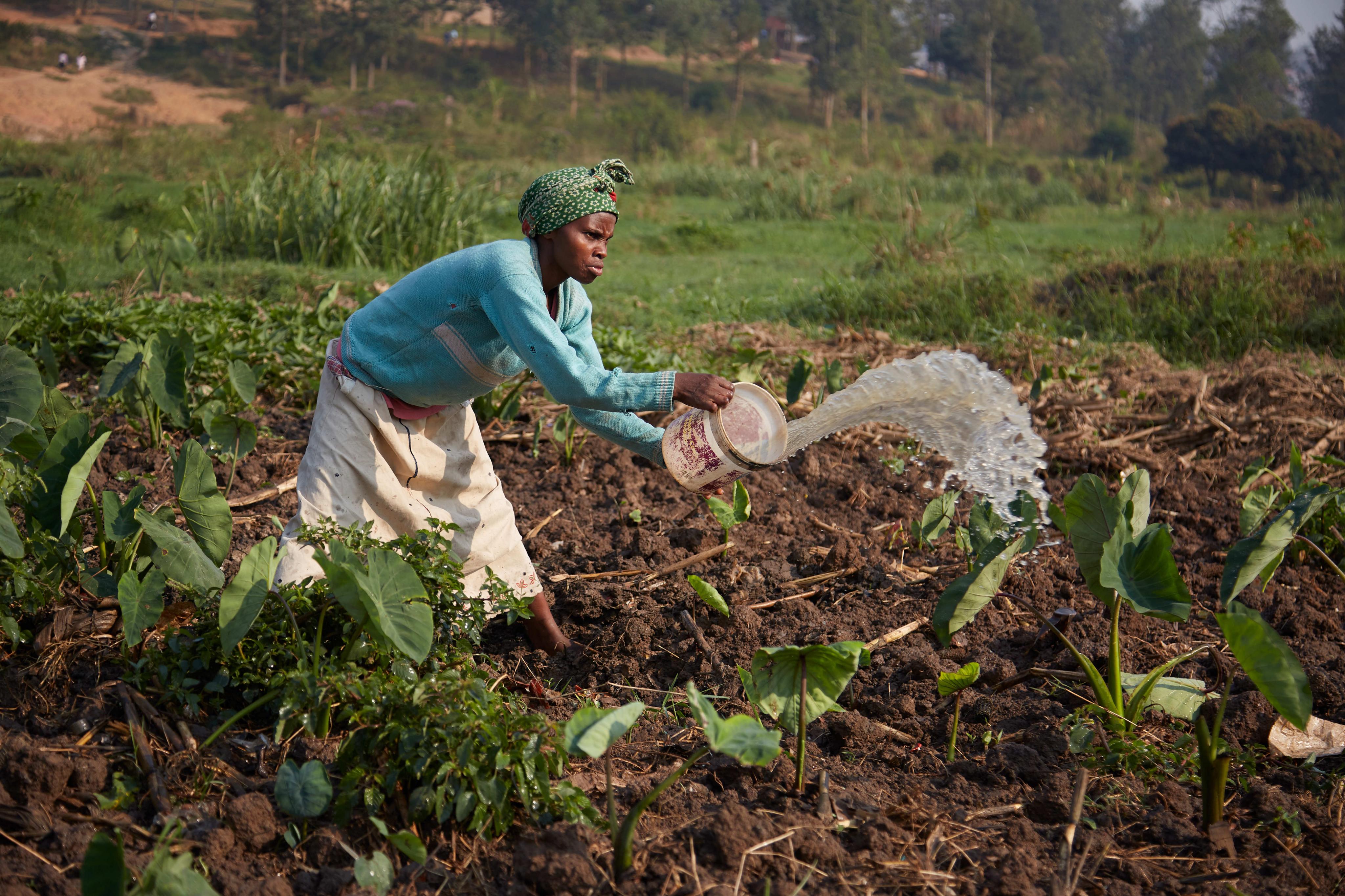Reproductive health
Argentina’s new abortion law

A landmark abortion rights law entered into force in Argentina in January 2021. Law No. 27,610 allows women to access abortion and related health-care services up to and including the 14th week of pregnancy. The law guarantees access to these services within 10 days of request.
This law puts Argentina at the forefront of advancing women’s reproductive freedom among large Latin American nations. Mexico took similar action a few months after Argentina. On 7 September 2021, Mexico’s Supreme Court outlawed any measures that penalise abortion. This sent a clear message to all Mexican states that they must support abortion rights.
Access to safe and legal abortion is very important. Illegal abortions are dangerous and sometimes deadly. Nonetheless, desperate women depend on them, which is why they are common in countries that deny women legal access. At the same time, prohibition means that unwanted babies are born to women who hardly have the means to raise them. Families get stuck in poverty. Moreover, societies that do not permit abortions tend to make access to contraceptives and sex education difficult too (see Renate Bähr on the D+C/E+Z platform). Adding to the problem, men – who do not become pregnant – often press or force women to have unprotected sex. An unmarried women’s reputation can be ruined by an out-of-marriage pregnancy, while her male partner remains totally unaffected.
Smaller countries in Latin America have long since liberalised abortion laws. Cuba permitted abortion in 1965. Guyana did so in 1995 and Uruguay in 2012. With larger countries such as Argentina and Mexico now following suit, Latin America – a region that is heavily Catholic and socially conservative – is turning a corner on this issue.
Argentina’s breakthrough on abortion rights did not come easily. It was the result of a confluence of unique political, social and economic conditions. To understand how this happened, it is important to consider the difficulties.
Big hurdles
To begin with, Argentina’s political structure focuses on presidential powers. Without the president’s support, a bill cannot move forward. Moreover, small and conservative provinces are over-represented in the Senate, while state governors have a lot of influence.
Given the influence of conservative forces, it took Argentina a long time to even consider liberalising abortion laws. Earlier women’s-rights initiatives focused on other, though related issues. For example, in the first decade of the 21st century, Argentina regulated reproductive health services and introduced a public-health programme aimed at benefiting women and girls. Among other things, it improved access to contraceptives. Between 2003 and 2007, the legislature approved a universal child allowance as well as policies appreciating sexual diversity.
Throughout these years, legalising abortion remained a taboo. In Argentina, abortion was only allowed in the case of rape or when the mother’s health was at risk. That was the official law from 1921 on, but it was not implemented in most provinces. Prominent cases of women who were prosecuted for having abortions made matters worse. Health-care providers built barriers to abortion.
In 2003, a coalition of feminist groups started lobbying for expanded rights. Their work led the introduction of several bills in Congress in the years 2007 to 2014 aimed at legalising abortion. The bills all failed. Comprehensive abortion rights were denied. Other reforms such as equal marriage rights for diverse couples also fell by the wayside.
There were glimmers of hope, nonetheless. In a case involving a teenaged rape victim in 2012, the Supreme Court ruled that some abortions are indeed allowed. That judgment allowed a woman’s mental health to be considered when courts decide whether an abortion is permissible. The fact that such a ruling was necessary shows how strongly provincial health officials resisted abortions.
Despite this ruling and a growing feminist movement, then-President Cristina Fernández de Kirchner (2007–2015) initially opposed legalising abortion. So did at least half of the ruling bloc in the lower house of Congress. That the head of state opposed reform, was an insurmountable barrier.
In 2015, the centre-left Peronist “Front for Victory” party lost the election after three consecutive terms in office. Mauricio Macri, leader of a centre-right coalition with conservative leanings, became president (2015–2019). The new government quashed any hopes of legalising abortion in the short term.
Yet activity on the streets told a different story. A wave of demonstrations protesting violence against women began in June of 2016. Under the banner “Ni Una Menos” (“Not one [woman] less”), the movement against femicides gathered strength. Considering those who die because of illegal abortions, it quickly embraced the cause of legalising abortion. Huge rallies took place, with participants wearing large green handkerchiefs.
Politically convenient distraction
Argentina’s teetering economy also helped to put abortion rights back on the political agenda. By early 2018, inflation was out of control and the economy was in tatters. In this setting, President Macri’s inaugural address on 1 March surprised lawmakers. He permitted Congress to consider abortion.
Many analysts stated that this step was meant to distract attention from the nation’s economic woes. Capital was fleeing the country as the economy worsened. That year, the International Monetary Fund granted Argentina the largest loan in IMF history.
In any case, Congress took up the challenge and debated allowing abortions. The debate extended beyond Congress to the media and social networks. Arguments were heated, featuring smear campaigns and horrific images showing fictitious abortions.
The lower chamber of Congress approved the abortion rights bill, but the Senate rejected it. The influence of small-state senators and the pressure from the Catholic Church proved very strong. As in other countries, abortion opponents suggested reform would only invite women to be irresponsible. That they never did much to help women get contraceptives or cope with poverty shows that their main concern is not the unborn baby’s life. It is to keep women under control.
Making matters more complicated, the leading parties were both split. Peronist state governors opposed the bill, and Peronist legislators voted overwhelmingly against it. The southern provinces and the province of Buenos Aires, which has a higher proportion of urban and middle-class voters, were more favourably disposed, but even here support was not uniform.
It was a turning point when the most prominent spokeswoman for progressive Peronism spoke out in favour of abortion rights. Cristina Fernández de Kirchner, the former president, who was now serving as a senator, changed her stance and endorsed reform. She did so at the urging of her electoral base, especially the urban middle class, and in response to the demonstrations on the streets.
By the 2019 presidential elections, voters had a clear choice. On one side was then senator Cristina Fernández de Kirchner and presidential candidate Alberto Fernández, a lawyer and former cabinet chief. They united the Peronist party and promised abortion reform. The alternative was the conservative ruling party headed by Macri. After the conservatives performed poorly in the primaries, Macri moved further to the right and withdrew his support for abortion rights.
The “Frente de Todos”, by contrast, adopted a feminist agenda, which also included combatting violence against women and improving women’s access to jobs. A few months after winning the election, its new government sent an abortion-rights bill to Congress, which passed it in December 2020.
Social shifts
The change of abortion policy at government level reflected a noticeable shift in popular sentiment. According to the polling company Ipsos, the share of Argentines who support the right to abortion under specific condition grew from 64 % to 75 % between 2014 and 2020. About 35 % of Argentine voters now approve of a woman’s right to choose abortion in any circumstances.
All these factors – the economic crisis, the growing demonstrations in the streets and the political manoeuvrings – contributed to the passage of the abortion law. At first, abortion rights may well have served to deflect attention from the economy. In a similar sense, it may have helped the new president, Alberto Fernández, to deflect attention away from the Coronavirus pandemic.
The result, though, is that Argentina’s women finally have the right to full reproductive self-determination. This was a turning point. Argentina’s historic abortion law has created much-needed momentum for women’s rights in the entire world region.
Virginia Caballero is a policy analyst and political scientist with feminist leanings.
caballerovirginiaa@gmail.com
María Lía Ghezzi is a policy analyst and political scientist with feminist leanings.
liaghezzi30@gmail.com













